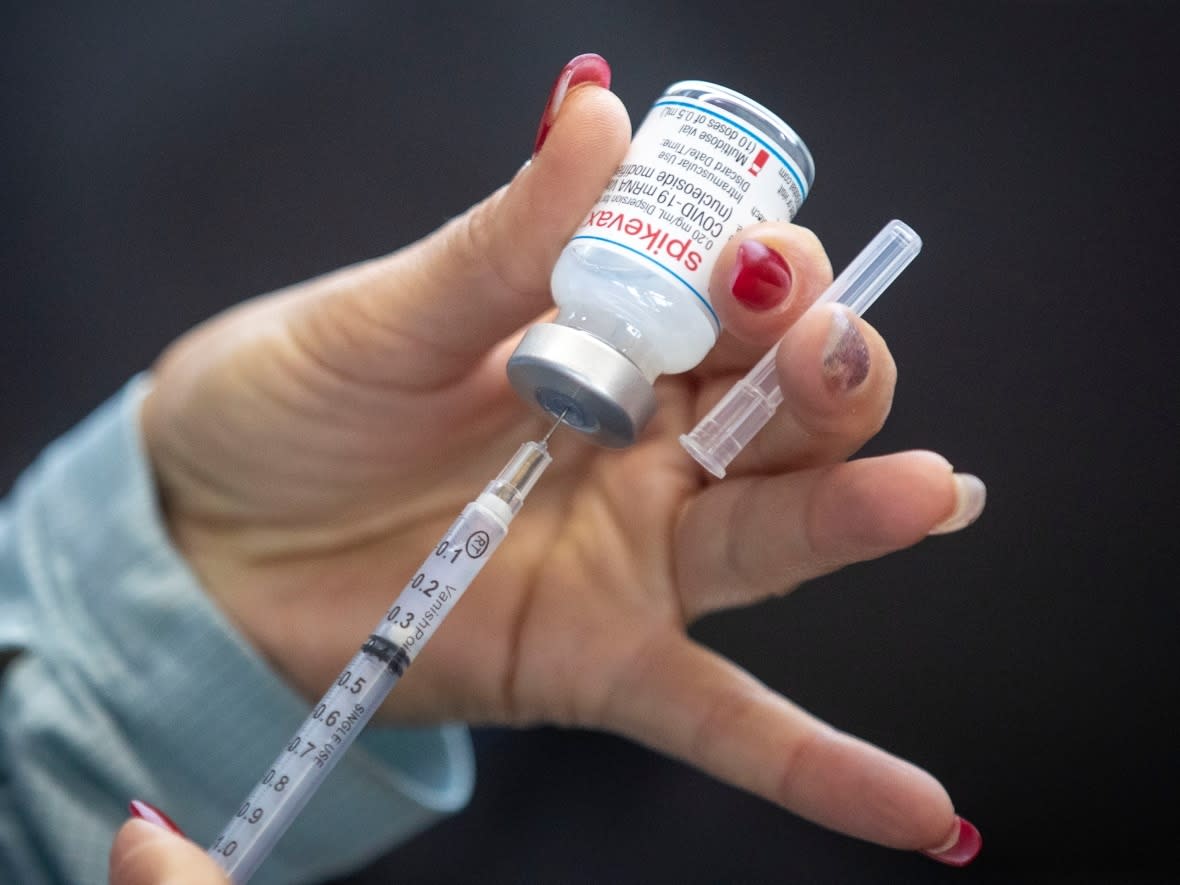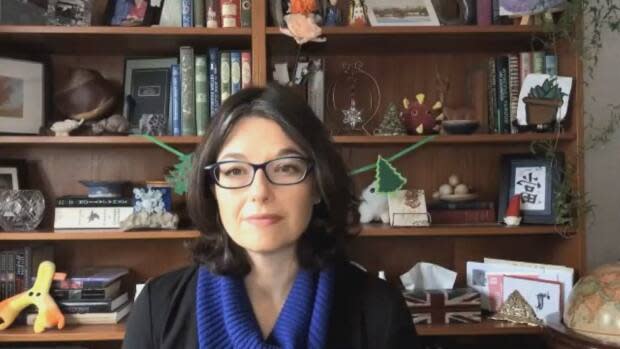Quebec recommends 3rd dose for those who've recently had COVID-19

Quebecers who have recently contracted COVID-19 will be able to get their third dose as soon as they are symptom-free, the government announced Wednesday.
Following a recommendation from Quebec Public Health, the province said anyone who wishes to get a booster shot, including those who recently had COVID-19, should get one "as soon as possible" to have better protection against the Omicron variant.
The new directive, issued amid skyrocketing hospitalization numbers, puts an end to the eight-week waiting period that had been recommended after illness. A three-month interval between the second and third doses must still be maintained.
But Benoit Barbeau, a virologist at the Université du Québec à Montréal, doesn't believe people with two doses of a COVID-19 vaccine need to rush to roll up their sleeves after recovering from the virus.
"Logically, it makes sense to wait for a number of weeks after infection before getting your third dose because most people will have a good enough [immune] response," he said.
Provincial guidance on that timing varies across the country, with B.C. suggesting a booster 10 days after the onset of symptoms or the date of a positive test result, and Ontario's top doctor recommending to hold off for 30 days.
In Quebec, the government announced last week that once the entire eligible population has had the opportunity to receive their booster dose, three doses of a COVID-19 vaccine will be required to use the province's vaccination passport system.
Currently, two doses are sufficient to be considered adequately vaccinated.
Now or later? 'It won't make a large difference'
McMaster University immunologist Dawn Bowdish says waiting a month after infection to get a vaccine allows your immunity to tone down, which allows your immune system to work without distraction.
"A month is a reasonable time to wait, but if you go a little bit earlier, a little bit later, it won't make a large difference in the immune response," she said. Bowdish said there's no real data suggesting there's a critical timeline to get that third dose post-infection.
Bowdish said there's also not enough data to show whether being infected with Omicron can prevent reinfection — as the variant is "really good at sneaking under imperfect immune response" — so getting a third dose after infection is strongly recommended.

Meanwhile, many people with symptoms consistent with COVID-19 are currently unable to test whether they have the virus, given the limited access to PCR tests and the lack of rapid tests in the province.
Bowdish believes many people who think they have COVID-19 may actually be isolating with another respiratory infection, leaving them vulnerable to catching the Omicron variant once they rejoin the population.
"That's another good reason to go out and get that third dose," Bowdish said. She said there's "no real reason to delay it."
On Wednesday, Quebec once again moved up appointments for third doses for younger Quebecers.
As of Thursday, people 25 and up will be able to make an appointment for a third dose of a COVID-19 vaccine on the province's Clic Santé website, and all Quebecers 18 and over will be able to do so this Friday.
Quebecers aged 35 and older can already register for their third shot.

